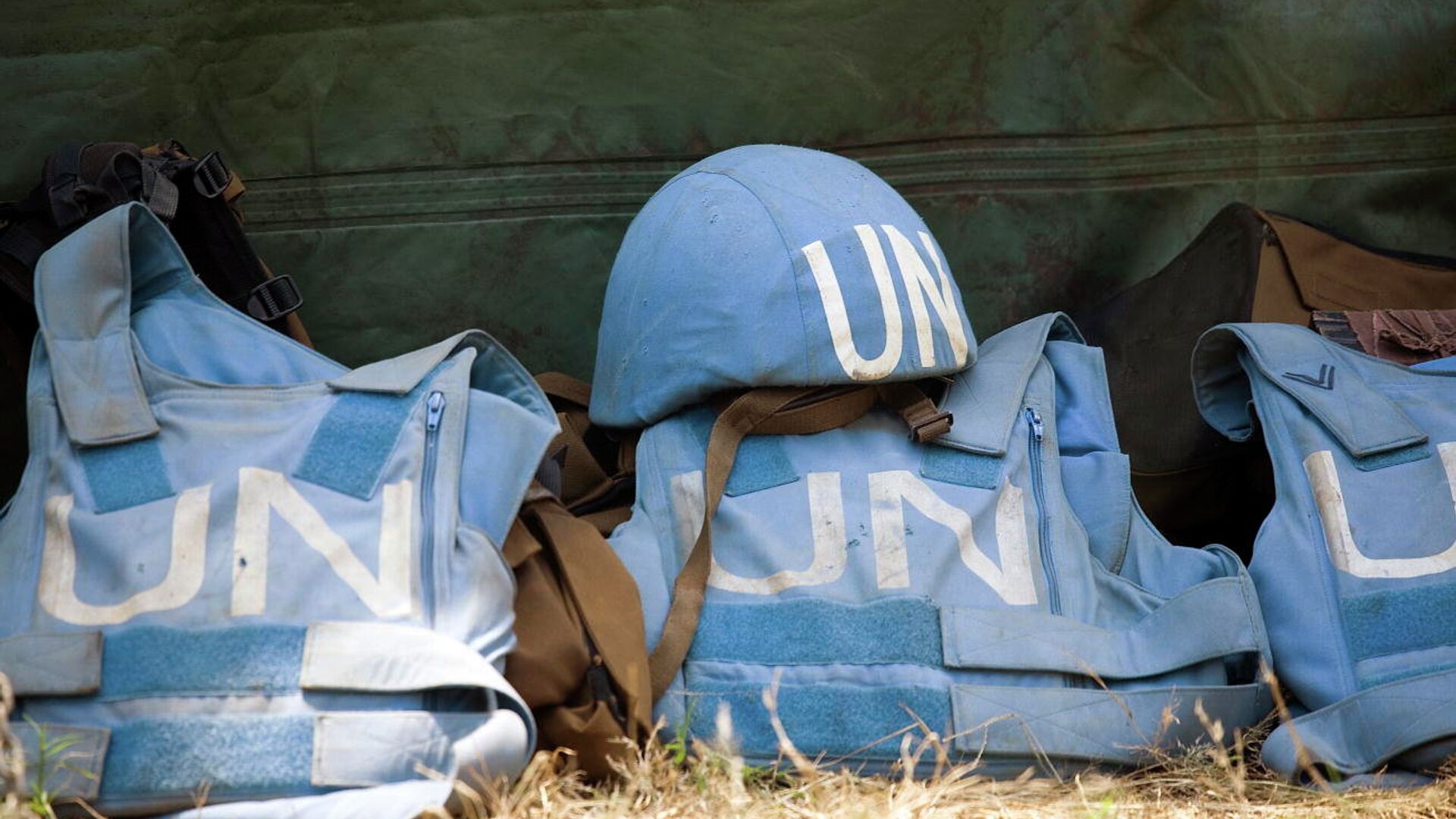https://sputnikglobe.com/20230208/russians-foreign-ministry-idea-to-send-un-peacekeepers-to-karabakh-hardly-realistic-1107060268.html
Russian's Foreign Ministry: Idea to Send UN Peacekeepers to Karabakh Hardly Realistic
Russian's Foreign Ministry: Idea to Send UN Peacekeepers to Karabakh Hardly Realistic
Sputnik International
The idea to send UN peacekeepers to Nagorno-Karabakh is hardly realistic, and the Russian peacekeeping contingent effectively carries out tasks of restoring peace and security in the region, Pyotr Ilyichev, the director of the Department of International Organizations at the Russian Foreign Ministry, has told Sputnik.
2023-02-08T01:09+0000
2023-02-08T01:09+0000
2023-02-08T01:03+0000
world
nagorno-karabakh conflict
un peacekeepers
russian foreign ministry
https://cdn1.img.sputnikglobe.com/img/101801/35/1018013524_0:68:1310:805_1920x0_80_0_0_5dd965e26988fe038952fb9ffac09e0f.jpg
The official said only the International Committee of the Red Cross is working in Nagorno-Karabakh among all international and foreign organizations, and "humanitarian agencies of the UN have not received permission from Azerbaijanis and Armenians to access the enclave, even for conducting an initial needs assessment mission." He added that difficulties arise from "the political impossibility to maintain an equidistant position with the parties." "We proceed from the fact that the Russian peacekeeping contingent is effectively carrying out all the tasks of restoring peace and security in Nagorno-Karabakh," he added. The diplomat said peacekeeping missions, deployed under a UN Security Council mandate, do not always enjoy the trust of nations, adding that some countries "advocate the withdrawal of the blue helmets because of their low effectiveness." The South Caucasus is considered one of the most conflict-ridden regions across the globe, primarily due to the long-standing conflict between Armenia and Azerbaijan over the breakaway Nagorno-Karabakh region (also known as the self-proclaimed Republic of Artsakh). In September 2022, the world saw a new outbreak of hostilities between Yerevan and Baku in an area unrelated to Nagorno-Karabakh — the most serious escalation since the 2020 events. The situation exacerbated in December when the Lachin corridor, the only road that links Armenia to the Nagorno-Karabakh enclave but runs through the Azerbaijani district, was blocked by a group of Azerbaijanis described by Baku as environmental activists. According to Armenian Prime Minister Nikol Pashinyan, the corridor's blockade violates the ceasefire declaration brokered by Russia between Armenia and Azerbaijan in 2020. The document delegated control of the Lachin corridor to Russian peacekeepers deployed in Nagorno-Karabakh. In late December, Pashinyan alleged that the peacekeepers did not fulfill their obligations regarding control over the corridor.
Sputnik International
feedback@sputniknews.com
+74956456601
MIA „Rossiya Segodnya“
2023
Sputnik International
feedback@sputniknews.com
+74956456601
MIA „Rossiya Segodnya“
News
en_EN
Sputnik International
feedback@sputniknews.com
+74956456601
MIA „Rossiya Segodnya“
Sputnik International
feedback@sputniknews.com
+74956456601
MIA „Rossiya Segodnya“
russian foreign ministry, un peacekeepers, karabakh, nagorno-karabak
russian foreign ministry, un peacekeepers, karabakh, nagorno-karabak
Russian's Foreign Ministry: Idea to Send UN Peacekeepers to Karabakh Hardly Realistic
MOSCOW (Sputnik) - The idea to send UN peacekeepers to Nagorno-Karabakh is hardly realistic, and the Russian peacekeeping contingent effectively carries out tasks of restoring peace and security in the region, Pyotr Ilyichev, the director of the Department of International Organizations at the Russian Foreign Ministry, has told Sputnik.
The official said only the International Committee of the Red Cross is working in Nagorno-Karabakh among all international and foreign organizations, and "humanitarian agencies of the UN have not received permission from Azerbaijanis and Armenians to access the enclave, even for conducting an initial needs assessment mission."
He added that difficulties arise from "the political impossibility to maintain an equidistant position with the parties."
"In these conditions of lack progress in the establishment of even international humanitarian assistance to Nagorno-Karabakh, the practical implementation of the idea of sending an international peacekeeping contingent, which, moreover, would require the approval of the UN Security Council, is hardly realistic," Ilyichev said.
"We proceed from the fact that the Russian peacekeeping contingent is effectively carrying out all the tasks of restoring peace and security in Nagorno-Karabakh," he added.
The diplomat said peacekeeping missions, deployed under a UN Security Council mandate, do not always enjoy the trust of nations, adding that some countries "advocate the withdrawal of the blue helmets because of their low effectiveness."
"Therefore, the question is not about who authorized the peacekeeping operation, but rather about whether there is the goodwill of both parties of the conflict to end it and eliminate its consequences," the official said.
The South Caucasus is considered one of the most conflict-ridden regions across the globe, primarily due to the long-standing conflict between Armenia and Azerbaijan over the breakaway Nagorno-Karabakh region (also known as the self-proclaimed Republic of Artsakh).
In September 2022, the world saw a new outbreak of hostilities between Yerevan and Baku in an area unrelated to Nagorno-Karabakh — the most serious escalation since the 2020 events.
The situation exacerbated in December when the Lachin corridor, the only road that links Armenia to the Nagorno-Karabakh enclave but runs through the Azerbaijani district, was blocked by a group of Azerbaijanis described by Baku as environmental activists.
According to Armenian Prime Minister Nikol Pashinyan, the corridor's blockade violates the ceasefire declaration brokered by Russia between Armenia and Azerbaijan in 2020. The document delegated control of the Lachin corridor to Russian peacekeepers deployed in Nagorno-Karabakh. In late December, Pashinyan alleged that the peacekeepers did not fulfill their obligations regarding control over the corridor.


